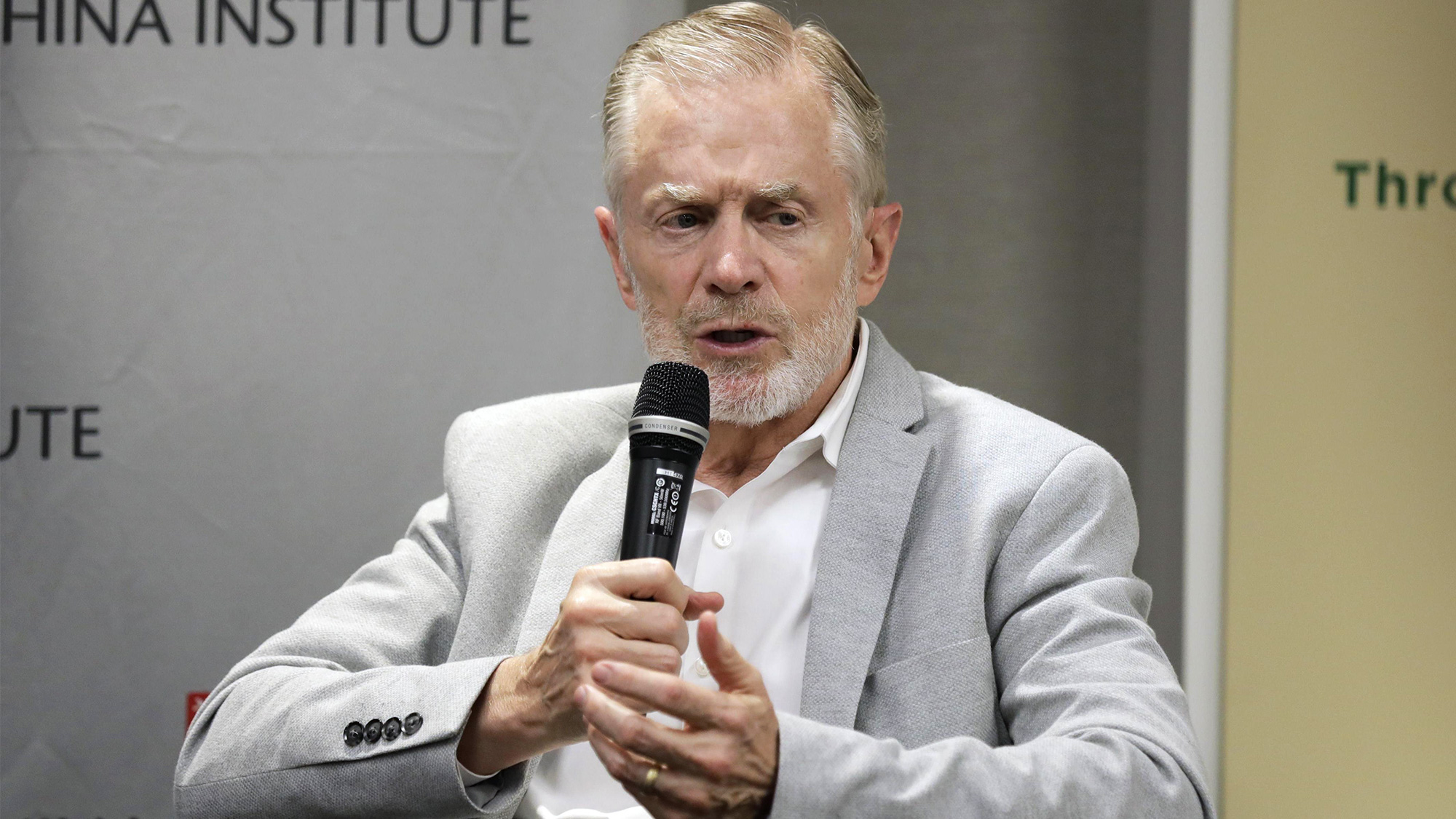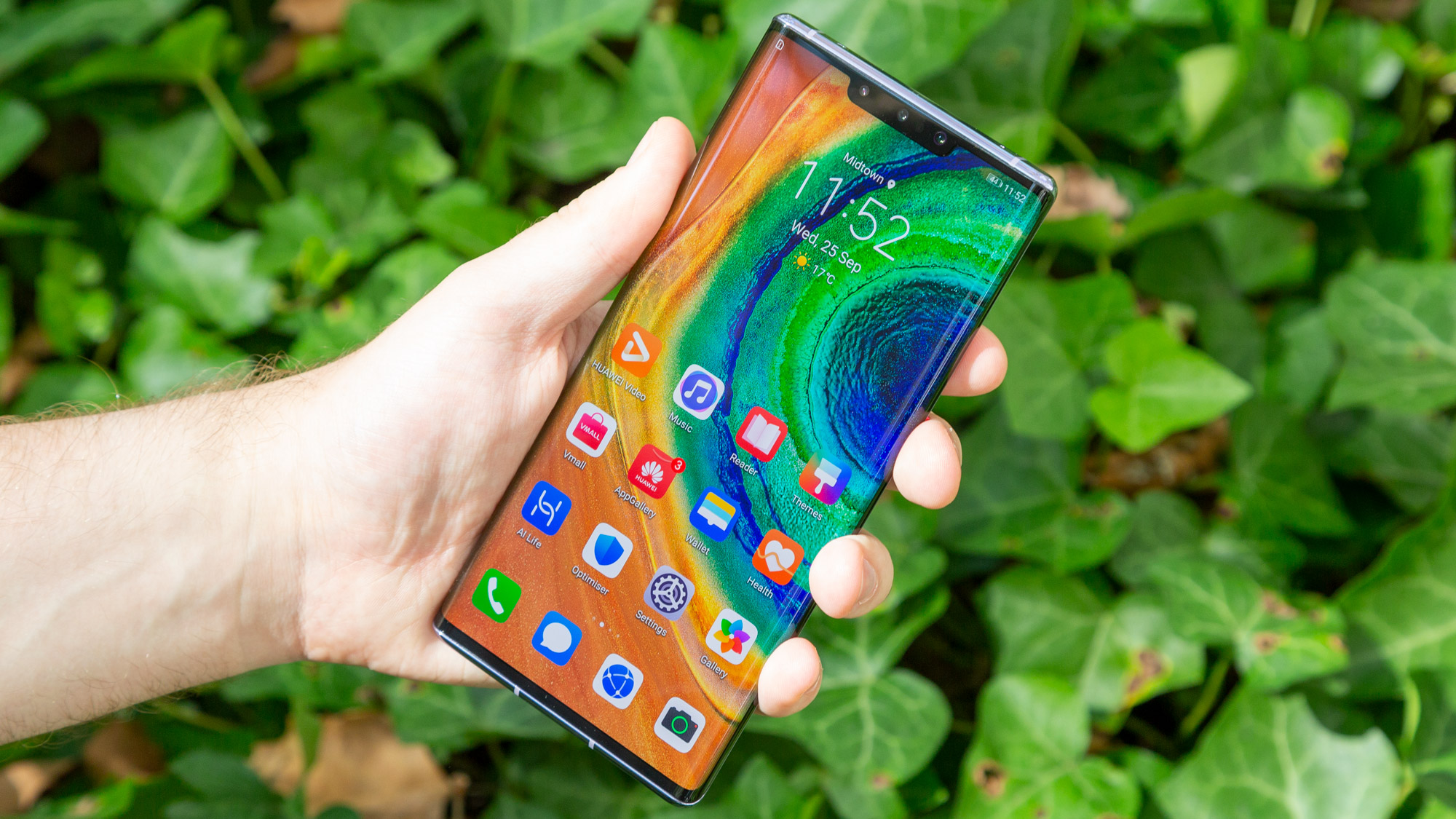Huawei Security Chief on Trump, 5G and Whether You'll Ever Be Able to Buy a Huawei Phone Again
Huawei chief security officer Andy Purdy has a plan, but the U.S. won’t talk

Huawei has had an interesting year, to say the least. The company found itself in the middle of President Donald Trump’s trade war with China, with Trump calling Huawei a “national security threat” due to its alleged ties to the Chinese government.
None of the major U.S. wireless carriers sell Huawei smartphones, and American companies face a ban on buying or selling hardware components or software to Huawei. (That ban is currently delayed, with an extension that expires in November.) The company’s latest flagship phone, the Mate 30 Pro, was released without Google apps — including the Google Play store.
But Huawei has spent a decade investing in and developing 5G technology, and is a key player in helping other countries build out their 5G networks, including China, South Korea, parts of Europe and Africa. The company could help those countries roll out 5G more broadly and quickly than the U.S., which might put American companies at a disadvantage for industries that will be transformed by 5G’s faster speeds and lower latency.
I sat down with Andy Purdy, Huawei’s chief security officer for the U.S., at Mobile World Congress Americas this week in Los Angeles to find out Huawei’s plans for the future — including one without Android. Purdy, who has extensive cybersecurity experience working for the Department of Homeland Security and in the George W. Bush administration, has overseen security and privacy for Huawei in the U.S. since 2012.
“It’s been even more interesting this year than perhaps I had expected, but the fundamental messages are the same,” Purdy said. “We have to address risk comprehensively, provide assurance and transparency.”
This interview has been edited and condensed for length and clarity.
What’s happening with the ban on U.S. companies doing business with Huawei?
Get instant access to breaking news, the hottest reviews, great deals and helpful tips.
They didn’t issue any licenses under the last extension. It’s really very limited ability to sell. That’s why we’ve moved hard to find alternatives to the American suppliers.
Would you move off Android if the ban remains in place?
We’re looking for an alternative. We don’t have a full alternative to the Android platform. That’s still to be determined.
What’s the status of Huawei’s relationship with Google?
We don’t know. We understand from the media that our suppliers have been reaching out to the government, and customers who buy from us have reached out to the government and made proposals to address the risk in a comprehensive manner.
“We don’t have a full alternative to the Android platform. That’s still to be determined.”
Andy Purdy, Huawei CSO
If President Trump and China settled the trade war tomorrow, do you think that would solve Huawei’s problems?
It’s interesting, and I think there have been some distractions, or what some would call mixed messages, along the line. Right now, the U.S. government really won’t talk with us. In a normal situation at a normal time, they would talk to us about risk mitigation; they would talk to us about the 130 suppliers that want to sell to Huawei and over 40,000 American jobs that depend on [it]. There are techniques to mitigate risk.
Keep in mind that Nokia and Ericsson have deep ties to China and are allowed to do business in the United States. They’re allowed to sell to the government and sell to critical infrastructure. Why is that? It’s because through discussions the U.S. government helped set up a government-monitored risk mitigation program for Nokia and Ericsson. We’re not saying that’s appropriate for Huawei, but let’s talk about how we can do this. A lot of American jobs are on the line.
The most I expect from the trade deal is that maybe then the U.S. government would be willing to talk with us. That would be a very good thing. If they were to decide that American suppliers could sell to us, is that more important to America or to Huawei? I think it’s probably more important to America.
What’s your take on the Huawei phone sales ban in the U.S.?
That’s the largest dead zone on all of the various issues, is the issue of our ability to sell phones through the carriers. The United States, I guess behind the scenes, told AT&T and Verizon not to carry our phones. They say there’s security concerns. OK, what are the security concerns? We’re on the Android platform. If there are security concerns with our phones, let’s find out what they are. Let’s make sure there aren’t problems with the Android platform that serves millions and millions of people. Let’s have a clear-eyed focus on national security and let’s figure out what are the problems and let’s address the problems.
You don’t know what the actual issue is, and whether it’s the hardware or software?
No idea.

Have you gotten pushback on Huawei phones in other countries?
It’s been a pretty extraordinary response around the world after the U.S. government started their campaign to try to block us. Australia decided to block us. There’s been some other movement that way.
Last week Germany came out and say they’re open to us selling. They’re coming up with a framework for how to do it. We’re having extensive discussions with telecom operators; we’ve met with a number of governments in the last couple of months.
I think what the European Union is doing will help lay the groundwork and hopefully what Germany has done will as well.
There’s this fear in the U.S. that allowing Huawei to have any part of the developing 5G infrastructure would allow China to spy on Americans. How would Huawei guarantee that China wouldn’t be surveilling the U.S.?
China and the U.S. are doing a pretty good job of surveilling most of the world, and not necessarily through Huawei equipment. There’s a geopolitical context right now between China and the U.S., and most in the government would say it’s more about the country than the company. They’re concerned — not that they’re alleging there have been major cybersecurity wrongdoing in the past — but they’re afraid China would force us to do things like spy or enable attacks going forward. The fact is, the major nation-states can hack into all the networks and systems. They can go through the equipment of all the telecom equipment vendors.
It’s very important to have a program that doesn’t just say, oh, well, Huawei’s headquarters is in China. The global supply chain includes major components in China, including Nokia and Ericsson. You need to have a comprehensive approach that provides an objective and transparent basis for knowing which products are worthy of trust. You need global uniform standards, you need product testing. It’s not just the equipment vendors. It’s the telecom operators. Even if China didn’t exist, we would have to make sure we have the standards and best practices for the telecom operators, and same for the equipment vendors. Just because you trusted a company last week doesn’t mean you can trust them today.
That’s what we’re recommending. Without hesitation I can say this is what’s necessary to address real cybersecurity risk.
This week, [Huawei Senior Vice President] Vincent Pang told Reuters that some U.S. companies are interested in licensing Huawei’s 5G technology. How would that work? And which companies?
I can’t talk about specific companies right now. Our founder Mr. Ren [Zhengfai], a month or two ago, made a pretty astounding offer to license to an American company the full stack of our 5G technology, including hardware and software. An American company could manufacture the stuff in the United States or manufacture it in Mexico or wherever. It would help create an American version of what you see in Europe with Nokia and Ericsson or in Chinese companies. It would be great for the global ecosystem to have another strong equipment vendor, particularly if you could have one that has resources to invest in research and development.
Some of the global players can barely invest in R&D. We invested $15 billion last year; we’re going to invest $18 billion this year. We’ve been doing it for 10 years. When you see all the patents we’re getting for 5G, you’ll realize that we’re coming up with the innovative technology. You can’t steal innovative technology. You steal existing technology. It’s very important to America to seriously consider Mr. Ren’s offer. I don’t know if anyone is going to seriously consider, but I think it would be a tremendous mistake to not seriously consider it.
“If people do things like not allow 130 American companies to sell to Huawei, potentially jeopardizing more than 40,000 American jobs, that’s just flat-out nuts. That’s hurting people for no possible gain.”
Andy Purdy, Huawei CSO
So if an American company decides to license the technology, how would that work? How much involvement would Huawei have?
The amount of money would have to be determined. [Zhengfai, Huawei’s founder] has said that Huawei would help the company learn how to manufacture, relearn the processes, and we would provide updates for awhile. That’s extraordinary. It ought to be too good to be true. And I imagine major companies, which is what it would take, are probably wondering, given all the hostile things said of late, it may take the U.S. government saying, “OK, someone can consider this.”
If Huawei isn’t allowed to participate in the rollout of 5G in the U.S., what does that mean for the race to 5G? What even is the race?
It’s not like if America gets there first, they get to plant the flag and control everything. The fact is, 5G isn’t about the race for the equipment. It’s the job-enabling, life-enabling capabilities of the 5G platform. Multiple countries can be at different speeds. You’re making progress for your country. If Huawei can’t compete in 5G, you have to look at the advantages of Huawei technology: speed, throughput, latency and then the multiple connections that can be made from the base station. It’s going to be slower and less if Huawei can’t compete.
It’s an exciting time. We really have to look at the true risk and look at what’s at stake. We can’t blindly say, “Let’s block Huawei; that’s the only one that doesn’t have a consequence.” It’s going to have a consequence. If people do things like not allow 130 American companies to sell to Huawei, potentially jeopardizing more than 40,000 American jobs, that’s just flat-out nuts. That’s hurting people for no possible gain.
Caitlin is a Senior editor for Gizmodo. She has also worked on Tom's Guide, Macworld, PCWorld and the Las Vegas Review-Journal. When she's not testing out the latest devices, you can find her running around the streets of Los Angeles, putting in morning miles or searching for the best tacos.
